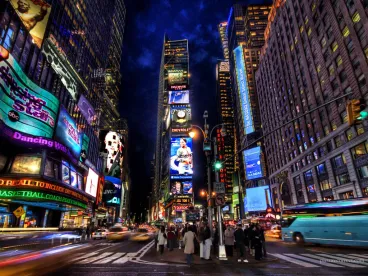With summer concerts and music festivals in full swing, many fans will be surprised to find $145 face value tickets reselling online for $3,000 to $11,000.
On May 11, 2017, New York Attorney General Eric Schneiderman took the most recent step in dealing with this problem, and announced seven settlements in “ticket bot” enforcement actions, calling for settlement payments totaling $4.19 million. This development represents the latest step in Schneiderman’s longstanding and highly publicized efforts to combat unfair ticket resale practices occurring in New York. The enforcement also highlights the technological methods that ticket brokers use to evade the protective measures of well-known ticket marketplaces or otherwise conceal their online activities.
Ticket brokers purchase event tickets at face value on the primary market from well-known websites, and then resell those tickets on the secondary market through various sites, usually at a markup. For years, ticket brokers have been using “ticket bots” to purchase tickets within minutes or seconds after they become available. Ticket bots are software designed to bypass security measures of vendor websites that limit the number of tickets a user can buy, thereby allowing the bots to purchase a number of tickets beyond the limit imposed by the vendor platform. With ticket bots in use, fans are forced to scramble for tickets online immediately after they are made available, or purchase them from ticket resellers at inflated prices.
The use of ticket bots has been pervasive in New York, so much so that the New York legislature outlawed the practice in 2010. (See NY Arts and Cultural Affairs Law (ACA) §25.24). However, that law only provided civil remedies and brokers continued to use ticket bots to bypass ticket marketplace protections. As described in the Attorney General’s May 11th announcement, in one instance, a broker used a bot to purchase 1,012 tickets to a Madison Square Garden U2 concert in a single minute.
In 2016, the Attorney General’s office released an extensive report (the “Report”) on the effect of ticket bots on the general public (Office of NYS Attorney General, Obstructed View: What’s Blocking New Yorkers from Getting Tickets). The Report found a number of occasions when bots were used at the direct expense of consumers. The Report urged immediate legislative and industry action to combat the “epidemic.” The New York legislature heeded the Attorney General’s call and revised the 2010 law, increasing civil remedies and adding criminal penalties. Individuals who violate the law now face charges for intentionally using ticket bots, intentionally maintaining interests in ticket bot operations, or knowingly reselling or offering to resell tickets known to have been acquired through bots. The law establishes a class A misdemeanor for these actions. The changes took effect in February 2017. Some New York state senators are fighting for even stricter ticket resale laws beyond the heightened civil and new criminal penalties added earlier this year. This June, however, the legislature opted to pass a one-year extension of the current laws, carrying them through June 30, 2018.
Since the Report and the February 2017 updates to the law, and including the seven settlements announced on May 11th, the AG’s Office has reached enforcement action settlements with 15 firms engaging in such practices with fines totaling $7.1 million.
Also, in 2016, President Obama signed the federal Better Online Ticket Sales (BOTS) Act into law, prohibiting the circumvention of control measures used by online ticket sellers or sale of event tickets obtained using illegal ticket bots. The Act provides for enforcement by the FTC, as well as by state attorneys general, adding yet another avenue for states to bring actions (and obtain both injunctive and monetary relief) against ticket bot users, this time in federal court.
With the issue garnering more public scrutiny and legislature attention in recent years, the New York enforcement came as no surprise.
In the settlement agreements announced on May 11, in addition to the settlement fines provided for in the agreement, the seven companies agreed to disgorge profits and to discontinue the practices of using bots or selling tickets without proper licensing. One company that had purportedly been developing software to bypass CAPTCHA tests (designed to block bots from acquiring tickets) agreed to stop developing technology to bypass security of ticketing websites.
For those in the industry and fans alike, this development indicates that the New York Attorney General’s office appears to be serious about combating abuses on the market, and will continue its efforts to stymie the use of ticket bots that circumvent online controls. If anything, the Attorney General’s enforcement efforts may increase in the near future as brokers use software and proxy services to gain an edge in obtaining highly-desirable tickets.
Kevin Milewski is the author of this article.


 />i
/>i
